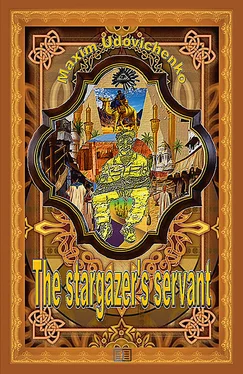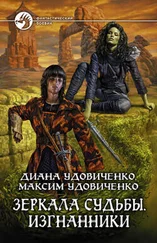He slowly outlined the plan of the upcoming campaign, trying as much as possible to bring everything in detail.
The Aoudaghost palace, belonged to a comer of the leaders of the black tribes Soninke [6] The Soninke (also called Sarakole, Seraculeh, or Serahuli) are a Mande people who descend from the Bafour and are closely related to the Imraguen from Mauritania. They speak the Soninke language, a Mande language. They were the founders of the ancient empire of Ghana c. 750-124 °CE. Subgroups of Soninke include the Maraka and Wangara. After contact with Muslim Almoravid traders from the north around 1056, Soninke nobles of neighboring Takrur were among the first ethnic groups from Sub-Saharan West Africa to embrace Islam. When the Ghana empire dispersed, the resulting diaspora brought Soninkes to Mali, Senegal, Mauritania, Gambia, and Guinea-Bissau.
, powerful Empire of Ghana, just two years ago, and was richly decorated with gold and precious stones.
The Palace walls abounded with painted and gilded frescoes and surahs from the Koran. The precious stones used in Arab mosaics, boggled the imagination.
A little garden with golden fountain in the middle, surrounded by palm trees and plants, full of beautiful birds, melodiously twittering amid the tree branches and plant leaf's, filling up the throne-room with a soothing romantic setting, it looked like the "Garden of Eden" or a marvelous oasis in the desert.
Carved in high relief on its golden groundwork, with elephants, giraffes and camels, the fountain gently threw out its waters with a pleasant murmur scattering the splashes in thousands of diamond sprays playing in the sun, accidentally or, on purpose attracting the birds to a bath. All that background created an indescribable atmosphere of Eastern luxury, tranquility and coolness.
"Oh, great Commander of the faithful!" the military leader Yahya-Ibn-Omar [7] It is worth noting, however, that at the time of events the=lmora-vids military leader Yahya-Ibn-Omar had managed to create a numerous and well-rehearsed army. Their main force was infantry, armed with javelins in the front ranks and pikes behind, formed into a phalanx and supported by camelmen and horsemen on the flanks.
continued his speech, "by the grace of Allah Almighty and Merciful, we cannot immediately move to the great Maghreb city of Sijilmasa [8] Sijilmasa (also Sijilmassa, Sidjilmasa and Sigilmassa) was a medieval Moroccan city and trade entrepot at the northern edge of the Sahara Desert in Morocco. The ruins of the town lie for five miles along the River Ziz in the Tafilalt oasis, near the town of Rissani. The town's history was marked by several successive invasions by Berber dynasties. Up until the 14th century, as the northern terminus for the western trans-Sahara trade route, it was one of the most important trade centers in the Maghreb during the Middle Ages.
, without rein-forcing our army with our allies' horsemen worriers. From Aoudaghost, the Caliph's army will move out to the city of Timbuktu.

At the Caliph's palace. The higher talk on the War Campaign.
When we reach Timbuktu [9] Timbuktu – (timbAk'tu:); French: Tombouctou [tabuk'tu]; Koyra Chiini: Tumbutu), formerly also spelled Timbuctoo and Timbuktoo, is a city in the West African nation of Mali situated 20 km (12 mi) north of the River Niger on the southern edge of the Sahara Desert. The town is the capital of the Timbuktu Region, one of the eight administrative regions of Mali. It had a population of 54,453 in the 2009 census. Starting out as a seasonal settlement, Timbuktu became a big and prosperous settlement early in the 12th century. From the 11th century and onward, Timbuktu became an important port where goods from West Africa and North Africa were traded. After a shift in trading routes, Timbuktu flourished from the trade in salt, gold, ivory and slaves. In its Golden Age, the town's numerous Islamic scholars and extensive trading network made possible an important book trade: together with the campuses of the Sankore Madrasah, an Islamic university, this established Timbuktu as a scholarly center in Africa. Several notable historic writers, such as Shabeni and Leo Africanus, have described Timbuktu. These stories, not without reason, fueled speculation in Europe, where the city's reputation shifted from being extremely rich to being mysterious. It became part of the Mali Empire early in the 14th century.
, the city ruler Moussa-Ibn-Khalid will graciously give us 10 thousand-foot warriors and 5 thousand mounted worriers from the tribe of the Messufa [10] Messufa – are black nomadic people and desert dwellers.
, for our military campaign. Having replenished water and food supplies in Timbuktu, we proceed to the town of Atar [11] Atar (Arabic: Berber for mountain) is a town in northwest ern Mauritania, the capital of the Adrar Province and the main settlement on the Adrar Plateau. It is home to an airport, a museum and a historic mosque, remained from 1674. As of year 2000 it had a population of 24,021.
, and from Atar, well smack down our blades on the heads of the Maghreb infidels, "– the military leader explained the details of the plan to Caliph.
"Your plan is undoubtedly successful, Yahya ibn Omar, but what will the Great- Al-Farouk-Ibn Saud say, who the gracious and merciful God has entrusted the gift to recognize his will by signs and stars," said the Caliph, referring to the tall greyish man, with straight delicate face features. The man of indefinite, but surely aged above fifty, with a black turban, embroidered with seven-pointed golden stars and crescents, looking very calm. His blue satin robe on his shoulders was richly decorated with gold ornaments.
"Oh, the Great Commander of the Faithful! The plan of Yahya-Ibn- Omar is truly perfect …" he posed for a moment, tracing the gaze of the audience.
"But the stars say that the campaign is doomed to endless battles against the infidel's superior forces of the!" Posted Al-Farouk-Ibn-Saud, and the glance of his intelligent, sharp piercing, black eyes expressed uncovered concern.
"So, you are predicting defeat?" asked the Caliph, losing his patience and rising from his throne.
"Oh, Grand Commander of the Faithful! I cannot predict anything, I've got a little ability to reveal the secret of Allah's Almighty and Merciful will, that He sends in signs and stars", said Al-Farouk, bowing in reverence.
"I had completely different intentions! I was going to lead the campaign and reach the Maghreb city of Fes, where as I know, by the Will of God the merciful, my teacher and mentor Abu-Imran-Moussa, has recently arrived", said Caliph, thoughtfully looking into the water splashes of the fountain which fancy sparkle in the rays of the hot desert sun.
"Oh, great Caliph!" Continued Al-Farouk, reverently bowing to the Lord.
"I understand how important it is for You to see Your great teacher and mentor Abu-Im-ran-Moussa. However, the signs of Allah the Almighty and Merciful, that I have read indicate that, for You, oh great and wise ruler of the faithful, it is vitally important to stay with part of the forces in the city", said Al-Farouk, bowing reverently.
"You are a brave man, Al-Farouk! By methods known only to you, in a very inexplicable way, you've been managing to read the Will of Allah the Highest and Merciful in the signs and stars", thoughtfully pronounced Caliph Abdullah, addressing the great astrologer.
"I will follow the Will of Allah the Highest and will remain in city, and the army will be led by the honorable commander Yahya-ibn-Omar", the Caliph announced his decision, bringing the high talk on the War campaign to a close.
Читать дальше













